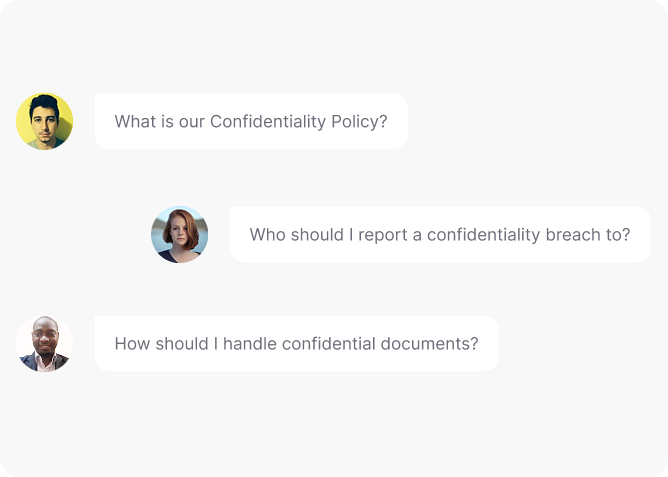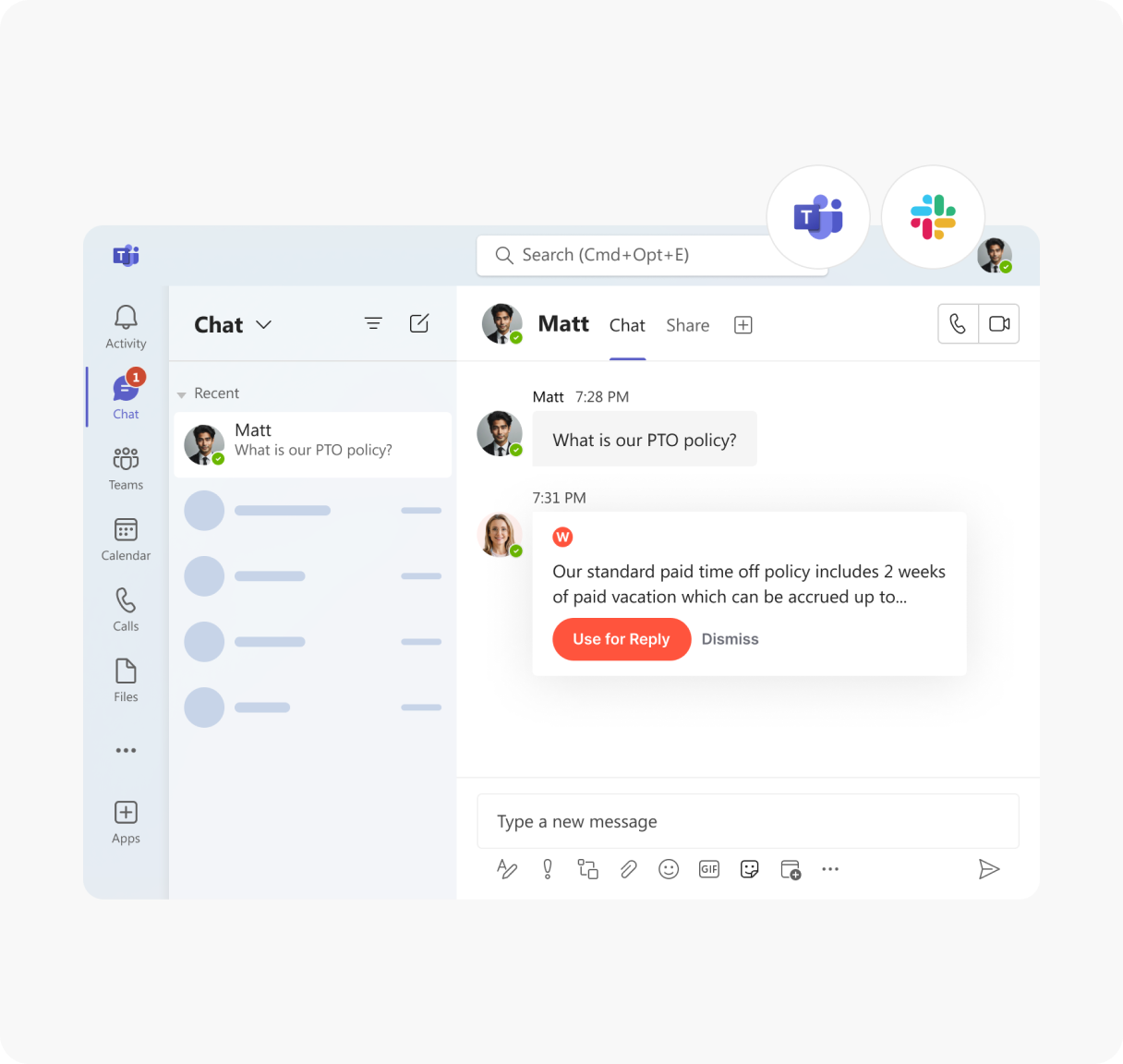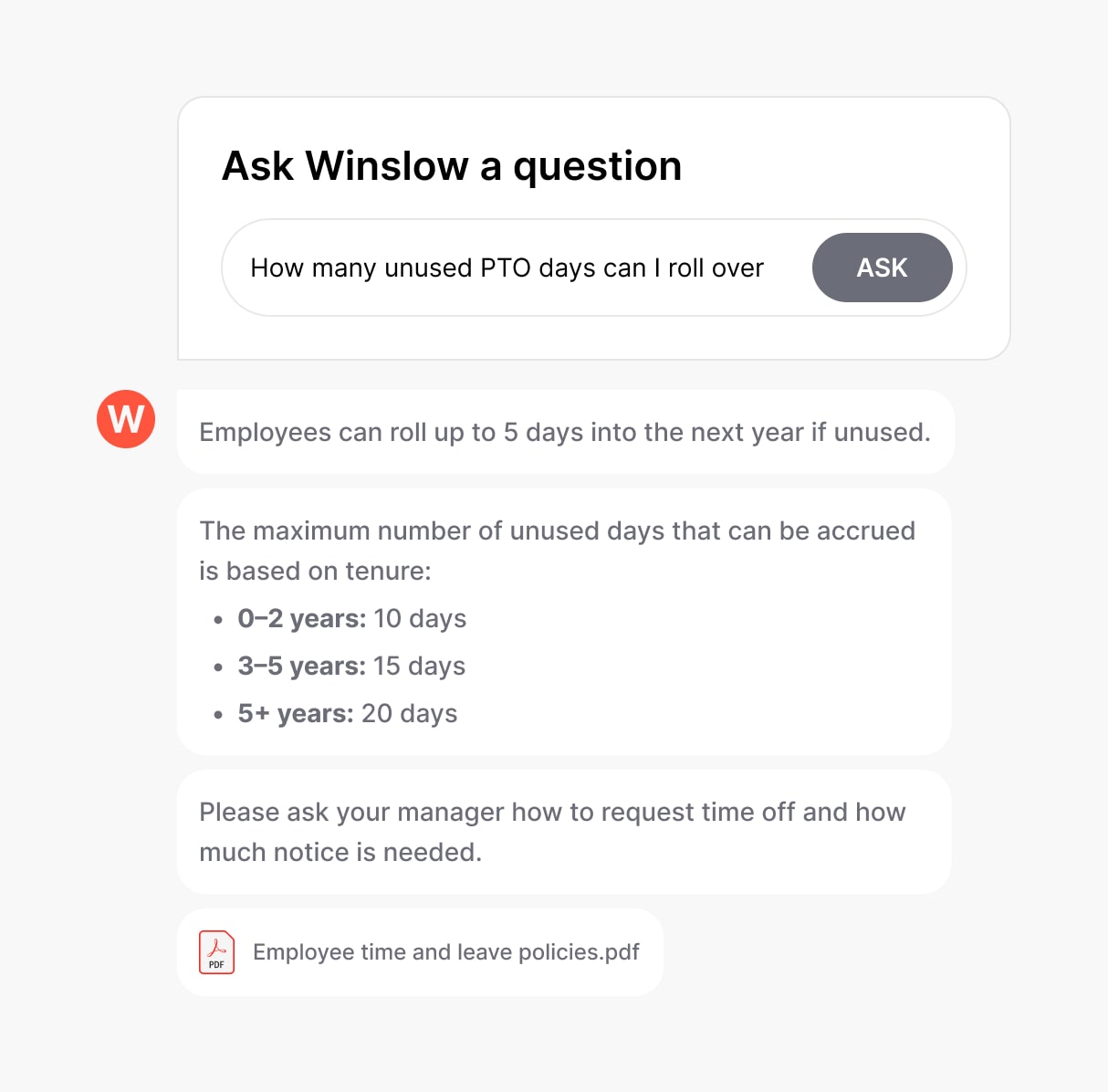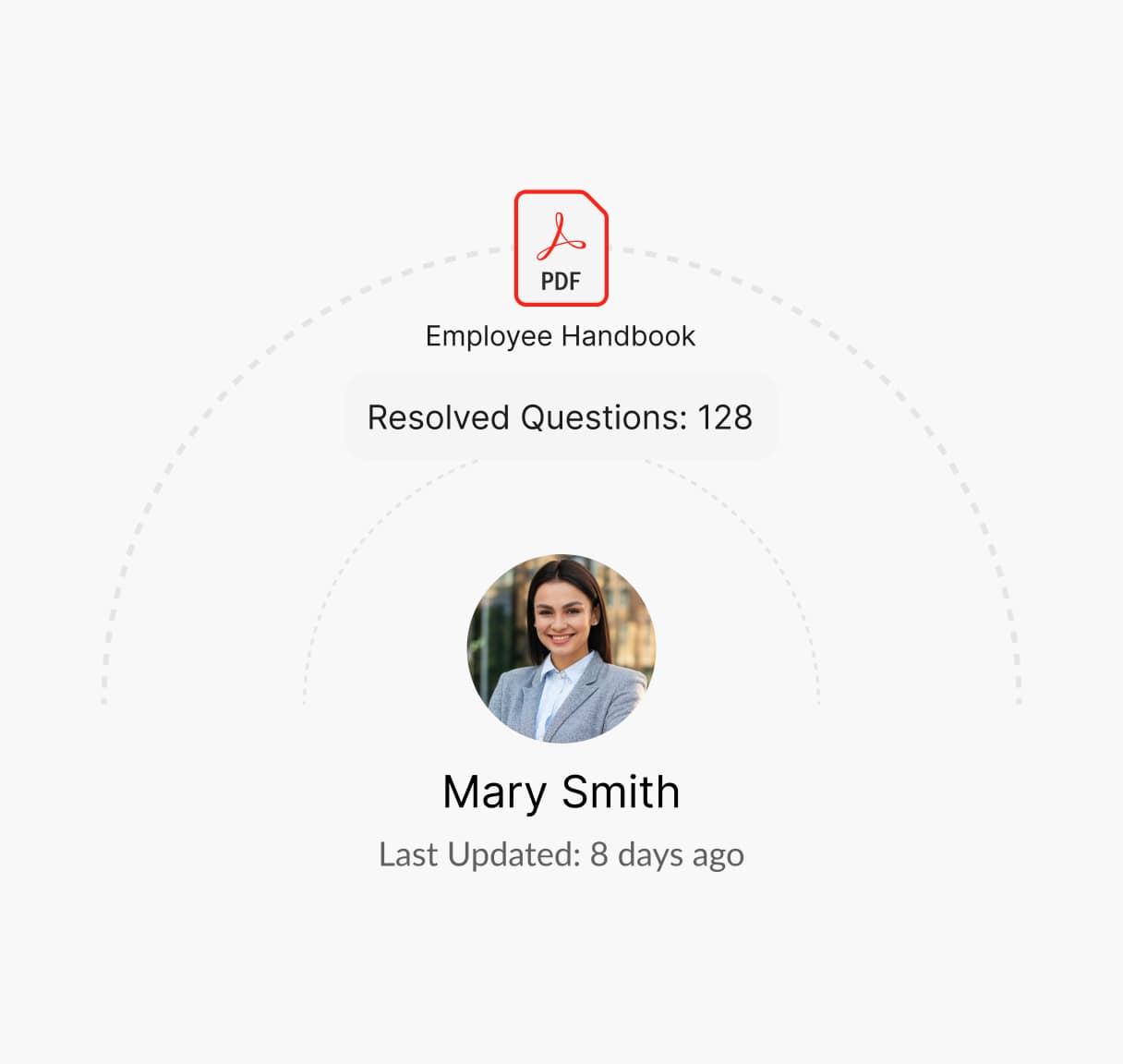Everything You Need to Know About Confidentiality Policy
Protecting sensitive information is crucial for business integrity. A Confidentiality Policy establishes guidelines for handling proprietary data, employee records, and trade secrets, ensuring compliance and safeguarding organizational interests.

What is a Confidentiality Policy?
A Confidentiality Policy is an HR document that defines how sensitive company and employee information must be handled. It includes data security measures, access restrictions, and consequences for breaches.
A strong confidentiality policy protects business interests, prevents data leaks, and ensures regulatory compliance.
Guidelines for Creating a Confidentiality Policy
A strong confidentiality policy protects sensitive company information, employee data, and client privacy. Here’s how to establish an effective policy:
Define What Information is Confidential
Specify data types covered, including employee records, financial data, trade secrets, and client information.
Clarify Employee Responsibilities in Data Protection
Outline expectations for handling, sharing, and storing sensitive company information.
Establish Access and Permission Levels
Define who can access specific types of confidential data based on job roles.
Outline Consequences for Breaches
Specify disciplinary actions for unauthorized disclosures, including termination or legal consequences.
Implement Secure Data Storage and Transmission Practices
Require encryption, secure file-sharing tools, and password protection for confidential files.
Regularly Train Employees on Confidentiality Protocols
Conduct workshops or e-learning sessions on best practices for data security and confidentiality.
What is Covered in a Confidentiality Policy?
An effective Confidentiality Policy should include the following:
Data Retention and Disposal Guidelines
Define how long confidential data should be stored and the proper procedures for secure disposal or deletion.
Employee Responsibilities and Non-Disclosure Obligations
Outline duties regarding handling, sharing, and safeguarding confidential information.
Data Access Control and Security Measures
Specify encryption standards, access controls, and restricted data-sharing protocols.
Third-Party Confidentiality Agreements
Define rules for sharing information with vendors, partners, or external consultants.
Handling of Data Breaches and Violations
Establish procedures for reporting, investigating, and mitigating confidentiality breaches.
Legal Compliance and Industry Regulations
Ensure alignment with laws like GDPR, HIPAA, or other relevant data protection regulations.
Consequences of Confidentiality Violations
Detail penalties for breaches, including disciplinary action, fines, or legal consequences.
Need help creating a Confidentiality Policy?
How Winslow helps HR teams save time on responding to confidentiality policy questions
Managing confidentiality-related inquiries can be time-consuming, but Winslow, your AI-powered HR assistant, simplifies the process:

Instant answers anytime
Winslow ensures your Confidentiality Policy is always available on Slack, Teams, or email. Employees can instantly find guidelines on data security, non-disclosure agreements, and handling sensitive information—ensuring compliance with company policies.
Personalized Support
Winslow instantly answers employee questions, including those about your Confidentiality Policy, ensuring clarity on confidentiality obligations, document classification, and breach reporting procedures.


Analytics and Insights
Winslow tracks policy-related queries, helping HR teams identify trends and common concerns. This data enables organizations to refine their policy, improve reporting channels, and address recurring issues proactively.
Save Time on Confidentiality Policies with Winslow
Protecting company data requires strict confidentiality policies, but ensuring employee understanding can be challenging. Winslow instantly answers questions about non-disclosure agreements, data handling protocols, and confidentiality best practices—so HR can focus on security and compliance.
Frequently asked questions
Have further questions about Winslow, contact us at sales@usewinslow.com
How should HR communicate confidentiality policies without creating a culture of secrecy?
HR should frame confidentiality as a trust-building measure rather than control, emphasizing protection of employee and company data rather than restriction of communication.
How should HR teams handle employees who test positive?
HR should enforce multi-factor authentication, encrypted storage solutions, and access control policies for sensitive documents.
How should HR handle confidentiality breaches?
HR should have a structured response plan, including immediate investigation, risk assessment, legal consultation, and corrective action against breaches.
What ongoing measures should HR take to reinforce confidentiality?
HR should conduct annual confidentiality training, use NDAs for high-risk roles, and audit access logs regularly.
How should HR differentiate between different levels of confidentiality?
HR should categorize data into restricted, internal-use-only, and public classifications, ensuring appropriate access levels for each.
Additional resources
Device Usage Policy
Managing employee leave effectively is vital for maintaining workforce productivity and compliance....
Learn moreclaim reimbursement
Ensuring fair compensation for expenses is key. A clear Claim Reimbursement Policy...
Learn morepayment policy
Ensuring timely and fair compensation is essential. A clear Payment Policy outlines...
Learn more




